
Conakry: The Vibrant Heart of Guinea
Conakry, the bustling capital of Guinea, offers a unique blend of traditional African culture and modern city life. Located on the Atlantic coast, its vibrant markets, lively music scene, and welcoming locals make it an attractive destination for adventurous travelers. Explore the National Museum, where you can learn about Guinea's rich history and diverse cultures through fascinating exhibits. Visit the stunning Grand Mosque, a key landmark with its impressive architecture and peaceful gardens. For a taste of local life, stroll through the bustling Marché Madina, one of West Africa's largest markets, where you can find everything from colorful textiles to fresh produce. Nature lovers will appreciate the nearby Îles de Los, a group of beautiful islands perfect for a day trip. Enjoy the pristine beaches, clear waters, and opportunities for snorkeling and exploring the local wildlife. Conakry's lively nightlife, with its mix of bars, clubs, and live music venues, ensures that your evenings are as exciting as your days.
Local tips in Conakry
- Learn a few phrases in French, as it is the primary language spoken in Conakry.
- Visit the Marché Madina early in the morning to avoid the crowds and find the best deals.
- Carry cash, as many places do not accept credit cards.
- Dress modestly and respectfully, especially when visiting religious sites.
- Try the local cuisine, such as 'Poulet Yassa' and 'Jollof Rice,' at street food stalls for an authentic experience.
Neighbourhoods in Conakry
Conakry: The Vibrant Heart of Guinea
Conakry, the bustling capital of Guinea, offers a unique blend of traditional African culture and modern city life. Located on the Atlantic coast, its vibrant markets, lively music scene, and welcoming locals make it an attractive destination for adventurous travelers. Explore the National Museum, where you can learn about Guinea's rich history and diverse cultures through fascinating exhibits. Visit the stunning Grand Mosque, a key landmark with its impressive architecture and peaceful gardens. For a taste of local life, stroll through the bustling Marché Madina, one of West Africa's largest markets, where you can find everything from colorful textiles to fresh produce. Nature lovers will appreciate the nearby Îles de Los, a group of beautiful islands perfect for a day trip. Enjoy the pristine beaches, clear waters, and opportunities for snorkeling and exploring the local wildlife. Conakry's lively nightlife, with its mix of bars, clubs, and live music venues, ensures that your evenings are as exciting as your days.
When is the best time to go to Conakry?
Iconic landmarks you can’t miss
Hôtel Kaloum
Experience luxury and culture at Hôtel Kaloum in Conakry, Guinea, featuring stunning ocean views and exceptional service for a memorable stay.
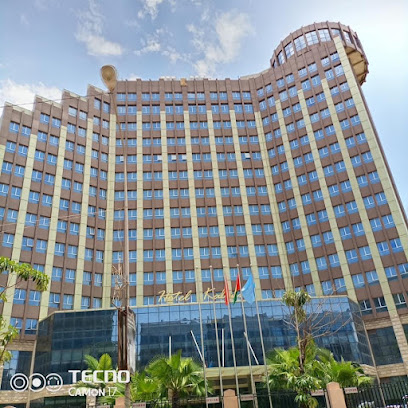
Grande Mosquée de Conakry
Discover the Grande Mosquée de Conakry, an architectural gem that embodies the spirit and culture of Guinea, inviting travelers to explore its beauty and serenity.
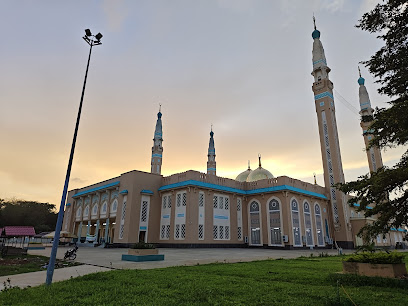
National Museum of Guinea
Explore the cultural richness of Guinea at the National Museum, where history and heritage come alive through captivating exhibits and artifacts.
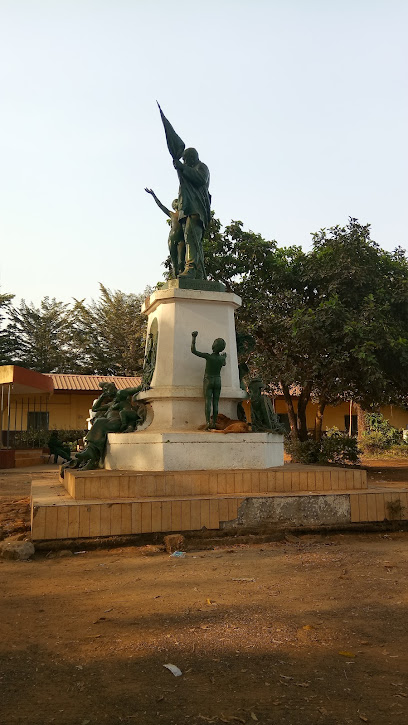
Palais du Peuple
Discover the rich history and vibrant culture at the Palais du Peuple, a key political landmark in Conakry, Guinea, offering insights into the nation's governance.
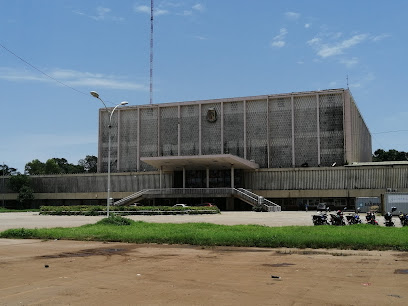
BlackCab Guinee
Discover the vibrant streets of Conakry with BlackCab Guinee, your reliable taxi service for safe and comfortable travel throughout Guinea.
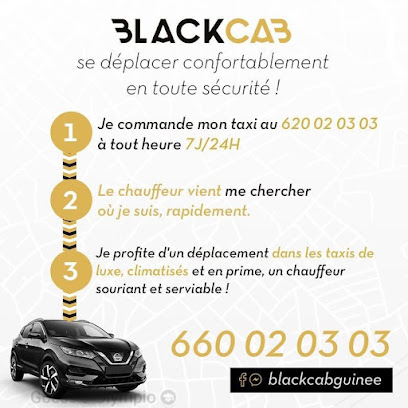
Crisber
Experience the pulsating nightlife of Conakry at Crisber, where music, dance, and local culture come alive in an unforgettable night out.
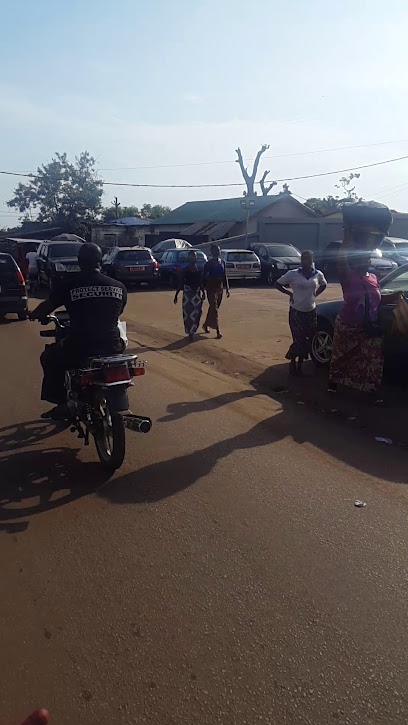
植物園
Explore Jardin de l'Amitié, Conakry's urban park, a lush green escape offering tranquility and vibrant flora in the heart of Guinea's bustling capital.
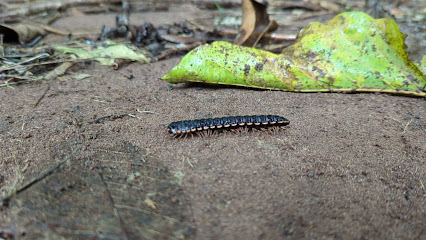
Mabalka investment LTD
Explore Mabalka investment LTD, Conakry's premier fashion accessories store, offering unique and vibrant pieces that reflect Guinea's cultural heritage.
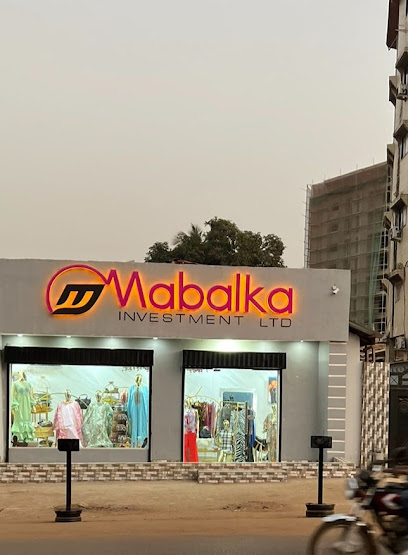
Jardins du 2 Octobre
Explore Jardins du 2 Octobre in Conakry, a lush garden oasis perfect for relaxation, cultural experiences, and beautiful scenery.
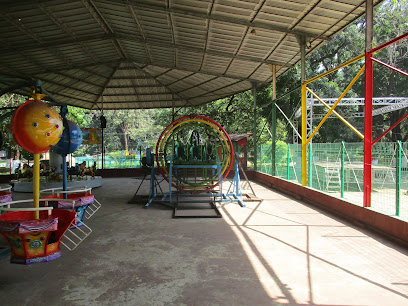
City Space Lounge
Experience the vibrant nightlife at City Space Lounge in Conakry, a perfect bar for cocktails, music, and mingling with locals.
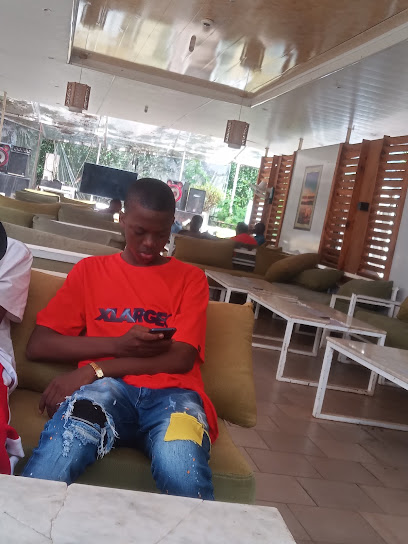
SUTURA HOUSE
Explore Sutura House in Conakry for unique fashion accessories that blend local artistry with contemporary style, perfect for every traveler.
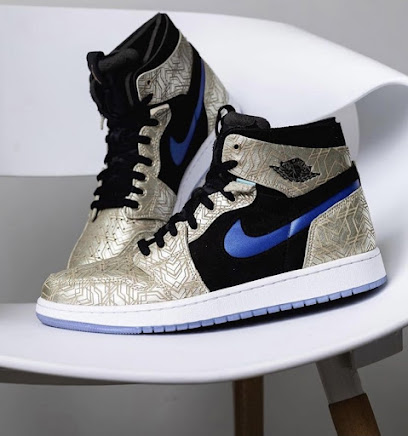
WAKANDA BEACH
Explore the stunning shores of Wakanda Beach in Conakry, Guinea, where relaxation meets adventure in a tropical paradise.
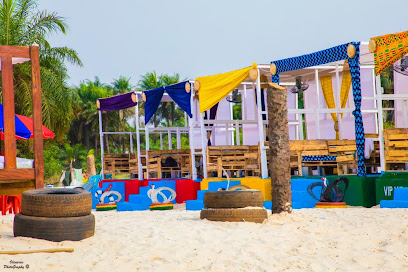
Wrangler business store
Explore fashion at the Wrangler Business Store in Conakry, where quality meets style in a vibrant shopping environment.
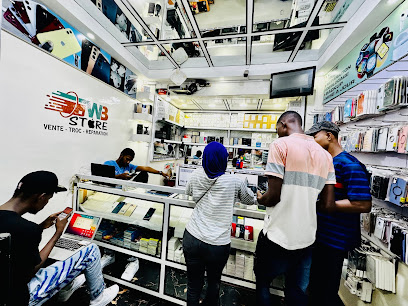
MARIA SHOWROOM
Explore the vibrant culture of Guinea and find unique handcrafted treasures at Maria Showroom in Conakry, your boutique destination for authentic souvenirs.

Kia Beauty
Discover the ultimate beauty retreat in Conakry at Kia Beauty, your destination for rejuvenation and elegance in Guinea.

Unmissable attractions to see
Bluezone de Kaloum
Discover the excitement and joy at Bluezone de Kaloum, Conakry's ultimate amusement center offering fun for everyone in the heart of Guinea.
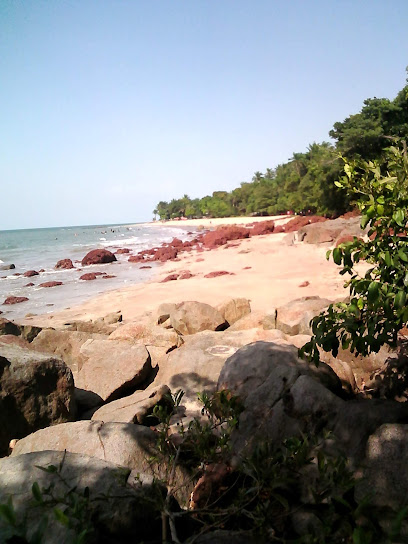
Des Moments Enchantés - Youpii Parc
Discover family-friendly fun at Youpii Parc in Conakry, a delightful amusement center with exciting activities for all ages.
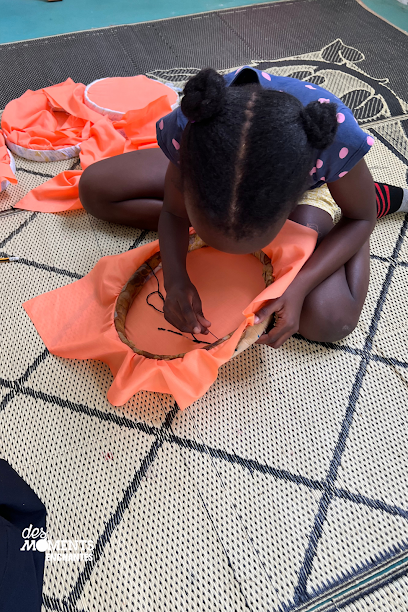
Rocky Beach Kipé
Explore the stunning Rocky Beach Kipé in Conakry, a tranquil escape blending natural beauty with vibrant local culture and unforgettable experiences.
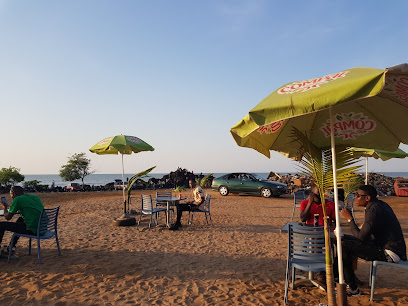
TAKKOMA
Discover the vibrant culture and stunning landscapes of Guinea at TAKKOMA, a must-visit tourist attraction in Conakry.
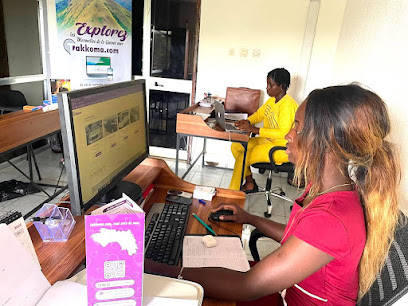
Jardins du 2 Octobre
Explore the tranquility of Jardins du 2 Octobre, a lush garden in Conakry that offers a peaceful escape and showcases Guinea's natural beauty.
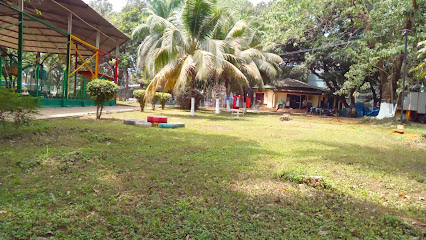
Essential places to dine
Avenue
Experience the flavors of Guinea at Avenue Restaurant in Conakry – where culinary tradition meets modern dining.
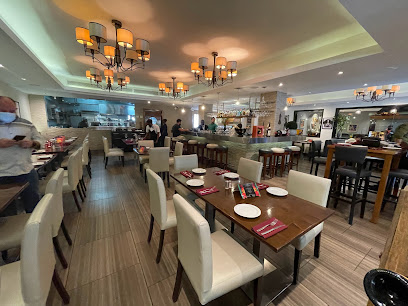
Le Special
Experience authentic Guinean cuisine at Le Special in Conakry – where local flavors meet warm hospitality.
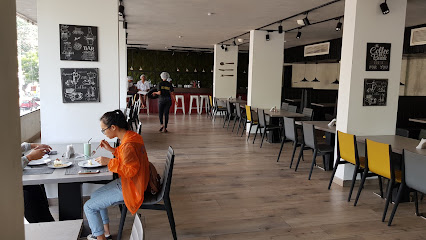
Le Patio
Experience the best of Guinean cuisine at Le Patio in Conakry – where local flavors meet international flair.
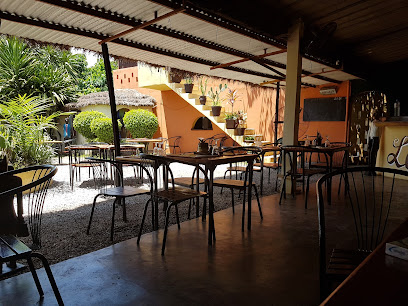
مطعم سدرة Restaurant Le Cèdre
Discover the rich flavors of Lebanon at Restaurant Le Cèdre in Conakry - A delightful culinary journey awaits!
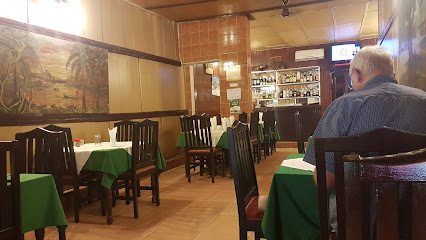
Italia Box
Experience authentic Italian pizza and delightful pastries at Italia Box in Conakry - a culinary gem offering warmth and flavor.
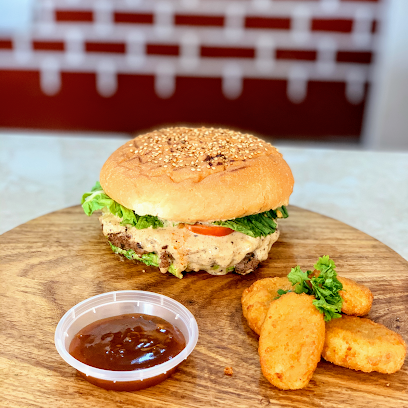
Restaurant Hanoi
Experience authentic Vietnamese cuisine at Restaurant Hanoi in Conakry – where every dish tells a story.
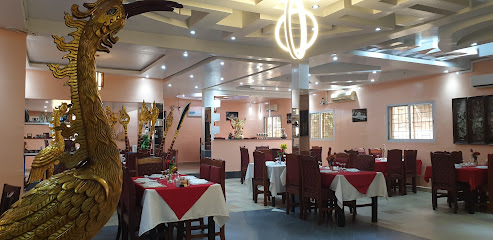
Restaurant Terrasse Aquarium
Discover the culinary treasures of Guinea at Restaurant Terrasse Aquarium - where exquisite flavors meet stunning views.
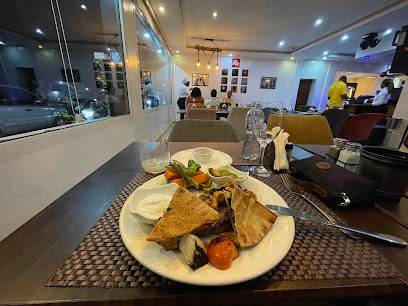
Siete
Experience authentic Asian cuisine at Siete in Conakry – where flavor meets culture in a vibrant dining setting.
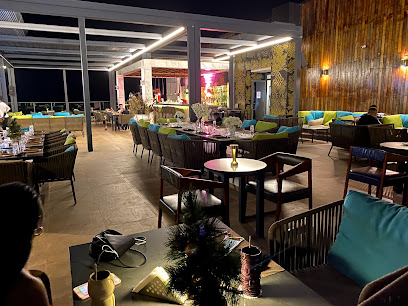
NOMAD
Discover NOMAD in Conakry - A delightful brunch experience featuring local flavors and cozy ambiance perfect for travelers.
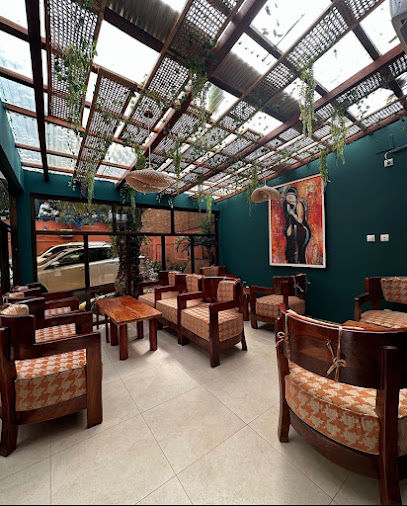
Taj Mahal Residences And Restaurant Conakry
Savor exquisite flavors at Taj Mahal Residences and Restaurant – where local meets international cuisine in Conakry.
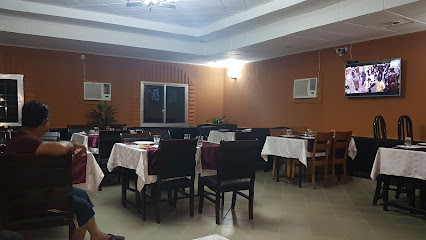
L’Étage, Conakry
Discover the vibrant tastes of Guinea at L’Étage, Conakry's premier destination for authentic local cuisine.
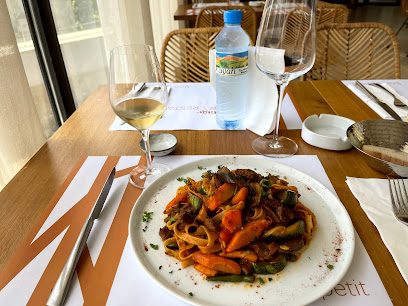
Best Chinese restaurant
Experience the best of Chinese cuisine in Conakry at this renowned restaurant offering authentic dishes and a warm dining atmosphere.
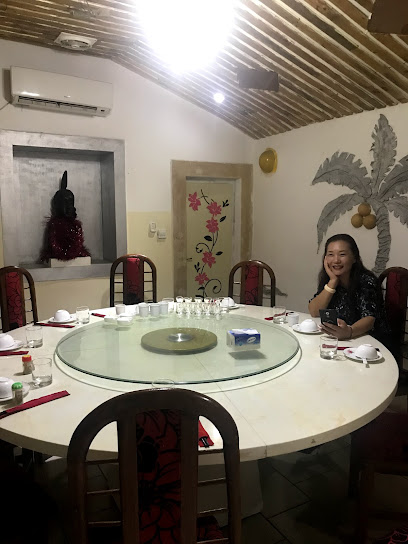
Restaurant la terrasse
Experience authentic Guinean cuisine at Restaurant La Terrasse in Conakry with breathtaking views and warm hospitality.
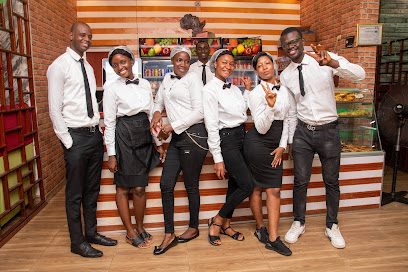
OKLM GRILL
Experience authentic African cuisine at OKLM Grill in Conakry - a must-visit destination for food lovers seeking rich flavors and warm hospitality.
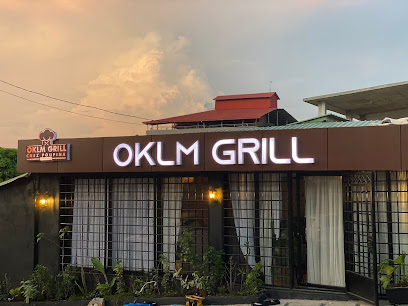
Rice Women Restaurant
Experience authentic Guinean cuisine at Rice Women Restaurant in Conakry – where tradition meets flavor in every dish.
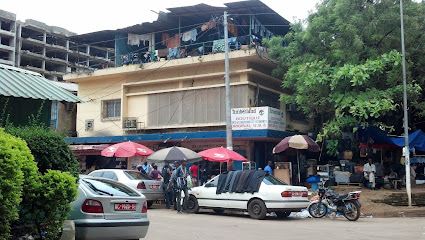
Markets, malls and hidden boutiques
PRIMA CENTER
Experience the lively atmosphere of PRIMA CENTER in Conakry, where shopping, dining, and entertainment come together in a vibrant cultural hub.
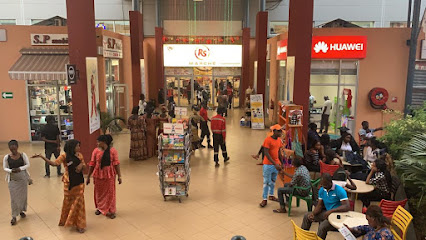
Guinéenne de l'e-cigarette
Explore the best of Conakry's vaping culture at Guinéenne de l'e-cigarette, your go-to vaporizer store in Guinea.
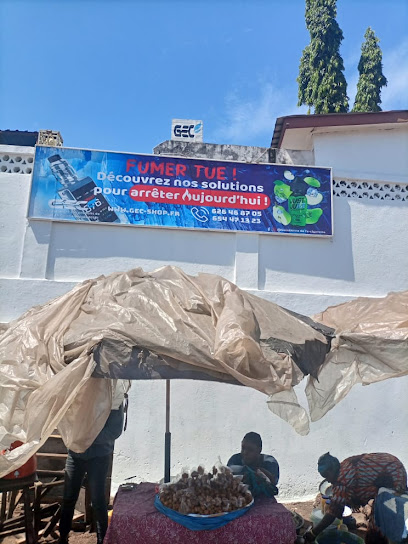
Bijouterie La Rose Guinée
Explore Bijouterie La Rose Guinée, Conakry's premier jewelry store offering exquisite local and international pieces that embody elegance and craftsmanship.
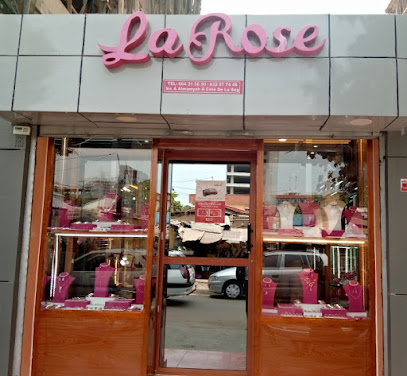
Tinki Store
Explore Tinki Store in Conakry for the latest computer software and gadgets, blending technology with the vibrant culture of Guinea.
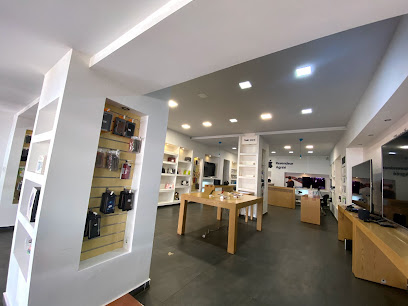
The luxury Shop
Discover the elegance of The Luxury Shop in Conakry, where high-end fashion meets local artistry for an unforgettable shopping experience.
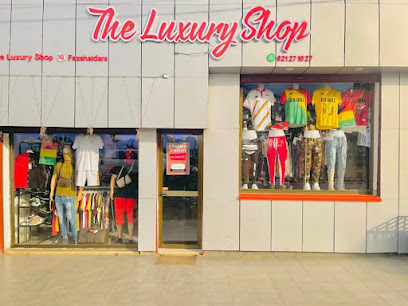
ZCO Supermarché - Manquepas
Explore diverse products and local flavors at ZCO Supermarché - Manquepas, a vibrant supermarket in Conakry, Guinea.
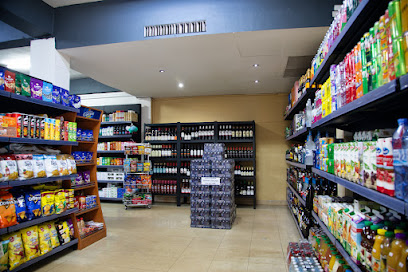
WEEKEND MART SUPERMARKET (INDIAN BAZAR)
Explore local flavors and products at Weekend Mart Supermarket in Conakry, a vibrant grocery store experience showcasing Indian spices and community spirit.
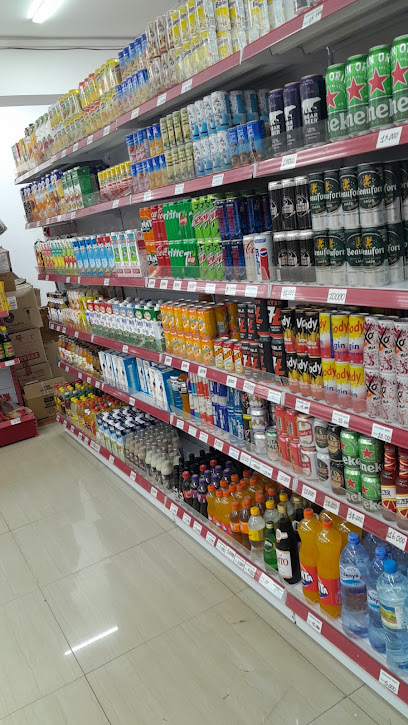
Arabinènè Marketplace
Discover the vibrant Arabinènè Marketplace in Conakry, where unique gifts, local crafts, and a lively atmosphere await every visitor.
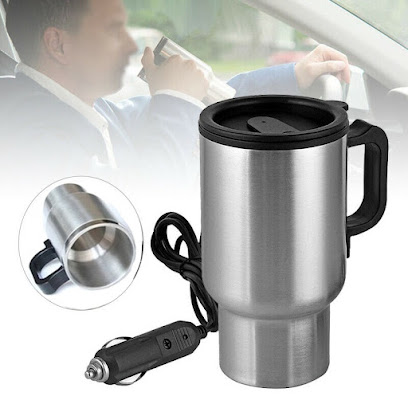
Guinée Nouvelle Mode _ Ha Nanny !
Explore the heart of Guinean fashion at Guinée Nouvelle Mode _ Ha Nanny !, where unique accessories meet local craftsmanship.
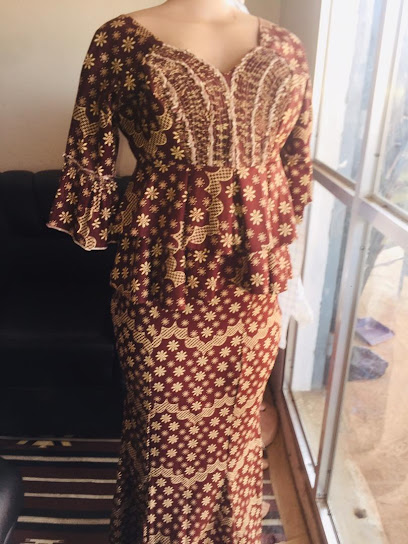
Huawei boutique Conakry华为手机专卖店
Explore cutting-edge technology at the Huawei Boutique in Conakry, where innovation meets style in a premier shopping destination.
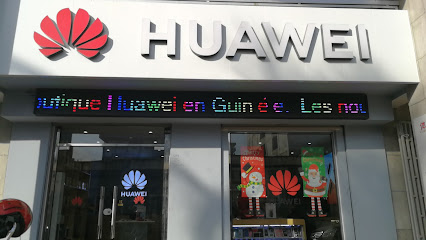
Mabalka investment LTD
Explore the essence of modern fashion at Mabalka Investment LTD, your go-to fashion accessories store in Conakry, Guinea.
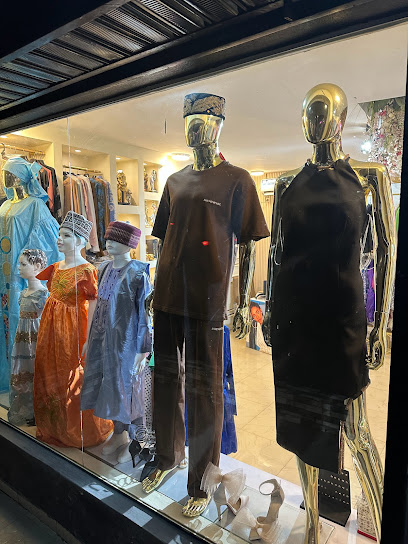
Black And White
Discover Black And White in Conakry - a bustling supermarket offering a wide range of local and international products for every traveler’s needs.

Souvenirs
Discover unique handcrafted treasures and local crafts at Conakry's vibrant Souvenir Store, where each item tells a story.
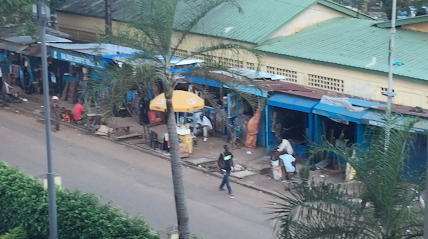
EUROMODE BOUTIQUE ZARA
Explore EuroMode Boutique Zara in Conakry for unique fashion finds and a taste of local style in a chic shopping environment.
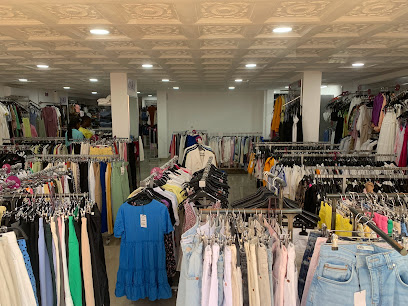
TIKI STORE 224
Discover unique local fashion and accessories at Tiki Store 224, a charming boutique in Conakry's vibrant Kipe district.

Essential bars & hidden hideouts
MLS Lounge Bar
Discover the vibrant nightlife of Conakry at MLS Lounge Bar, where exceptional drinks and lively ambiance await every visitor.
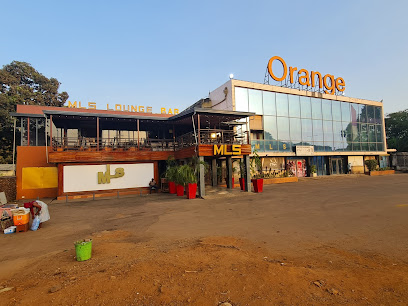
CODE BAR
Experience the vibrant nightlife of Conakry at CODE BAR, where exceptional drinks and local cuisine create unforgettable memories.
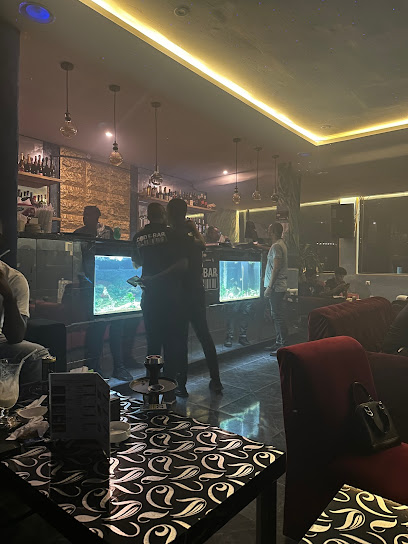
Grand REX Night Club
Unveil the enchanting nightlife of Conakry at Grand REX Night Club, where music, dance, and local culture come alive.
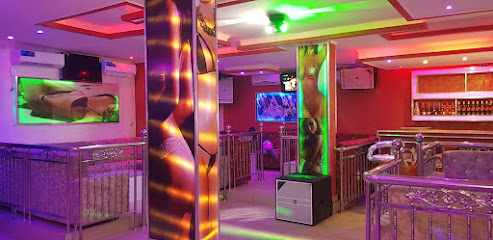
Frock Man
Discover Frock Man in Conakry: a lively beer hall offering a delightful selection of local and international brews in a vibrant atmosphere.
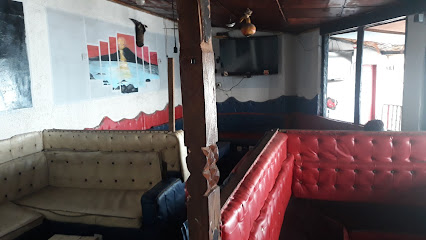
Océan's Lounge
Discover the lively Océan's Lounge in Conakry, Guinea - a perfect blend of relaxation, cocktails, and nightlife for every traveler.
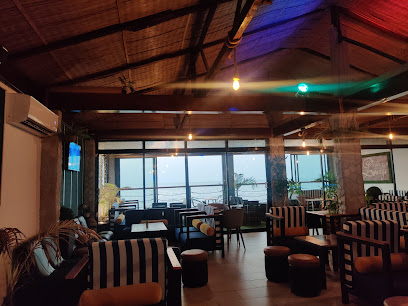
Sky Lounge
Discover the tranquil ambiance and stunning views of Sky Lounge in Conakry, Guinea, the perfect spot for relaxation and exquisite refreshments.
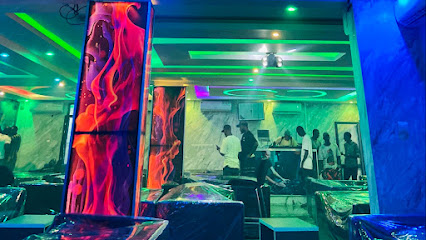
Konvict Club Lounge Bar
Discover the vibrant nightlife of Conakry at Konvict Club Lounge Bar, where great cocktails and live music create unforgettable experiences.
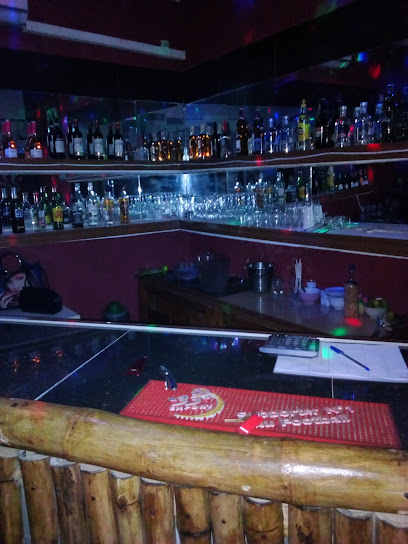
Le Badé
Discover the lively nightlife of Conakry at Le Badé, where vibrant ambiance meets delightful drinks and live music.
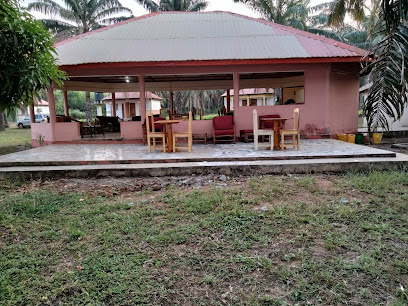
Lobby Bar
Unwind at Lobby Bar in Conakry, where vibrant nightlife meets local hospitality in a friendly atmosphere.
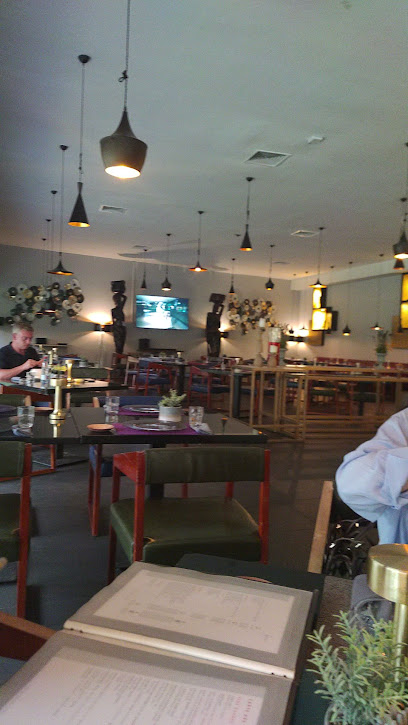
galaxy Feu Rouge
Discover the heart of Conakry’s nightlife at Galaxy Feu Rouge, a vibrant bar where locals and tourists gather for refreshing drinks and lively atmosphere.
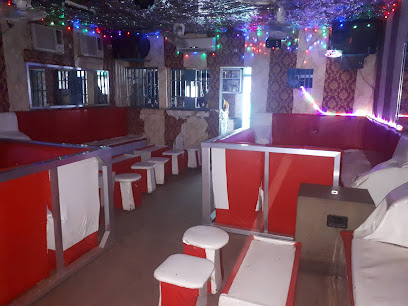
Le Baron
Experience the vibrant nightlife of Conakry at Le Baron, where exceptional cocktails meet a lively atmosphere for an unforgettable evening.
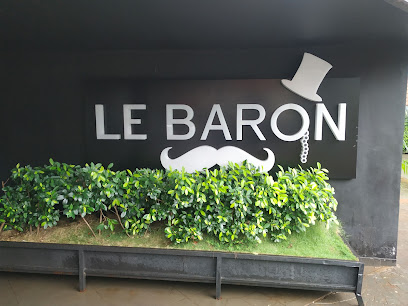
Cantona Bar
Discover the vibrant nightlife of Conakry at Cantona Bar, where locals and visitors unite for unforgettable drinks and entertainment.
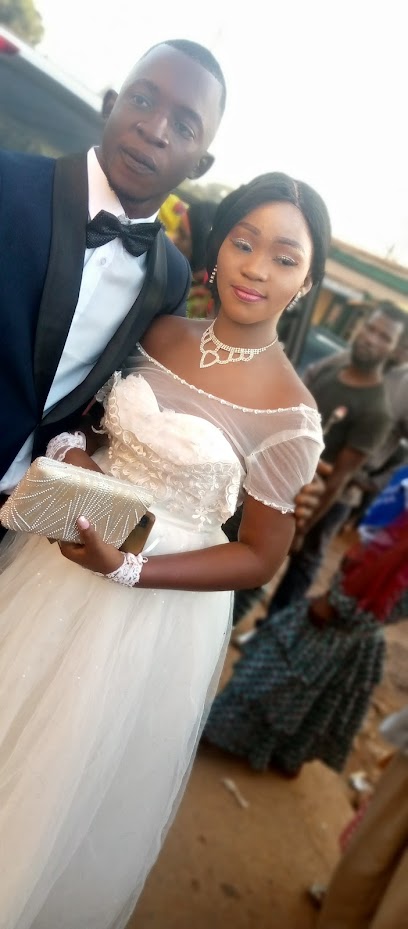
Bar hilton 5 etoiles
Discover the elegance of Bar Hilton 5 Etoiles, where Conakry's vibrant nightlife meets luxurious relaxation in a stunning setting.

The Best Lounge & Bar
Experience the vibrant nightlife of Conakry at The Best Lounge & Bar, where delicious cocktails and a lively atmosphere await.
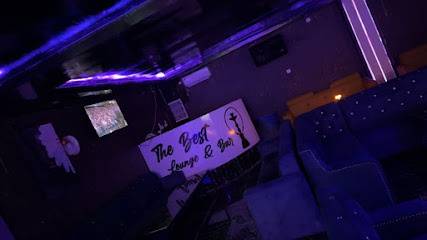
Local Phrases
-
- HelloSalam
[sa-laam] - GoodbyeDeh alaama
[de-ah ala-ma] - YesEh
[eh] - NoAh
[ah] - Please/You're welcomeMba'e
[em-ba-ay] - Thank youAbaraka
[a-ba-ra-ka] - Excuse me/SorryWadii
[wa-di] - How are you?Nongni?
[non-gnee] - Fine. And you?Maa ngi fi. A ton?
[ma-ngi-fee. a-ton] - Do you speak English?Mbe naa Angaley yi?
[em-bay-na-an-ga-lay-yee] - I don't understandMbaa saa taw
[em-ba-sa-taw]
- HelloSalam
-
- I'd like to see the menu, pleaseNguey naa taa meni, kaa do
[n-gway-na-ta-men-ee, ka-do] - I don't eat meatMbaa saa jaa so miit
[em-ba-sa-ja-so-mit] - Cheers!Sante
[san-tay] - I would like to pay, pleaseNguey naa saa woonu, kaa do
[n-gway-na-sa-wo-nu, ka-do]
- I'd like to see the menu, pleaseNguey naa taa meni, kaa do
-
- Help!Ndee!
[n-day] - Go away!Wuyi!
[woo-yee] - Call the Police!Wuyi Police!
[woo-yee-po-lee-say] - Call a doctor!Wuyi dokta!
[woo-yee-dok-ta] - I'm lostMbaa saa fex
[em-ba-sa-fex] - I'm illMbaa saa borom
[em-ba-sa-bo-rom]
- Help!Ndee!
-
- I'd like to buy...Nguey naa saa woonu...
[n-gway-na-sa-wo-nu] - I'm just lookingMbaa saa baaxa
[em-ba-sa-ba-a-cha] - How much is it?Nuey naa def?
[n-gway-na-def] - That's too expensiveDo fii beey tu
[do-fee-bee-too] - Can you lower the price?Ndaw tu def?
[n-daw-too-def]
- I'd like to buy...Nguey naa saa woonu...
-
- What time is it?Dundu def?
[doon-do-def] - It's one o'clockDef beey
[def-bee] - Half past (10)Def ak jom (10)
[def-ak-jom] - MorningFiit
[feet] - AfternoonKeewal
[kee-wal] - EveningBeewal
[bee-wal] - YesterdayFiite
[fee-tay] - TodayNgoon
[n-goon] - TomorrowKilaa
[kee-la] - 1Bi
[bee] - 2Jom
[jom] - 3Jette
[jet-tay] - 4Naalu
[naa-loo] - 5Wor
[wor] - 6Worom
[wo-rom] - 7Jooma
[joo-ma] - 8Jookal
[joo-kal] - 9Joojet
[joo-jet] - 10Fuk
[fook]
- What time is it?Dundu def?
-
- Where's a/the...?Ndee...?
[n-day] - What's the address?Dundu defu?
[doon-do-def-oo] - Can you show me (on the map)?Ndaw tu wuyi (al xaritu)?
[n-daw-too-woo-yee-al-cha-ree-too] - When's the next (bus)?Ndee dem (bus) bi?
[n-day-dem-boos-bee] - A ticket (to ....)Dem (to ....)
[dem-to]
- Where's a/the...?Ndee...?
History of Conakry
-
Conakry was founded in 1887 by the French, who established it as a strategic port and administrative center. The city was initially located on Tombo Island, but eventually expanded to the Kaloum Peninsula.
-
During the colonial period, Conakry developed rapidly as a trade hub. The French built extensive infrastructure, including roads, railways, and port facilities, to facilitate the export of resources such as bauxite, gold, and agricultural products.
-
Guinea gained independence from France on October 2, 1958, with Conakry becoming the capital of the new nation. Ahmed Sékou Touré, the first President of Guinea, ruled for 26 years, during which he established a one-party state and pursued policies of African socialism.
-
The post-independence period was marked by economic difficulties and civil unrest. Despite its natural resources, Guinea struggled with poverty and underdevelopment. Conakry, as the political and economic center, often became the focal point for protests and political turmoil.
-
Conakry is rich in cultural heritage, with landmarks such as the Grand Mosque, the Palais du Peuple, and the National Museum of Guinea. The city also hosts vibrant markets, like the Madina Market, showcasing Guinea's diverse cultures and traditions.
-
In recent years, Conakry has experienced significant urbanization and population growth. Efforts to modernize the city's infrastructure have been ongoing, with improvements in transportation, healthcare, and education aimed at enhancing the quality of life for its residents.
Conakry Essentials
-
Conakry, the capital city of Guinea, is accessible primarily by air. The Conakry International Airport (Gbessia Airport) is the main entry point for international travelers. Major airlines such as Air France, Brussels Airlines, and Royal Air Maroc operate regular flights to Conakry from various international destinations. The airport is located about 13 kilometers from the city center, and taxis are available for transportation into the city. There are no direct rail or bus connections from neighboring countries, so flying remains the most practical option.
-
Getting around Conakry can be challenging due to traffic congestion. Taxis are the most common form of transportation and are relatively inexpensive. It is advisable to agree on the fare before starting your journey. Shared taxis (known locally as 'taxi-brousse') are also available for longer distances. Public minibuses (known as 'magbanas') operate on fixed routes and are a budget-friendly option, although they can be crowded. Car rental services are available, but driving in Conakry can be hectic due to the traffic and road conditions.
-
The official currency in Guinea is the Guinean franc (GNF). While some high-end hotels and restaurants accept credit cards, cash is the most widely used form of payment. ATMs are available in Conakry, but it is advisable to carry sufficient cash, especially when traveling outside the city. Currency exchange services are available at the airport, banks, and some hotels. It is recommended to exchange money at official exchange points to avoid counterfeit currency.
-
Conakry is generally safe for tourists, but it is important to take standard precautions. Petty crime, such as pickpocketing and bag snatching, can occur, especially in crowded areas. Avoid walking alone at night and stay vigilant of your surroundings. The neighborhoods of Madina and Matam have higher crime rates, so it is advisable to exercise extra caution in these areas. Always use reputable taxi services and avoid displaying valuable items in public.
-
In case of an emergency, dial 117 for police assistance and 442-0202 for medical emergencies. The main hospitals in Conakry are Ignace Deen Hospital and Donka Hospital, both of which offer emergency services. It is highly recommended to have travel insurance that covers medical emergencies, as healthcare facilities may have limited resources. Pharmacies are available throughout the city for minor health issues and over-the-counter medications.
-
Fashion: Do dress conservatively. Lightweight, breathable clothing is recommended due to the tropical climate, but avoid revealing attire. Religion: Do respect local customs and traditions. When visiting mosques or religious sites, dress modestly and remove your shoes before entering. Public Transport: Do be patient, as public transport can be crowded and delayed. Don't argue with drivers or other passengers. Greetings: Do greet people with a handshake. It's polite to greet elders first. Eating & Drinking: Do try local dishes such as 'riz gras' and 'poulet yassa'. Don't refuse food or drink offered by hosts, as it is considered impolite.
-
To experience Conakry like a local, visit the bustling Marché Madina, the largest market in the city, where you can find everything from fresh produce to traditional crafts. Engage with locals, who are often friendly and eager to share their culture. Don't miss the opportunity to enjoy live music at local bars and clubs, as Conakry has a vibrant music scene. For a more relaxed experience, take a ferry to the Îles de Los, a group of islands off the coast of Conakry, known for their beautiful beaches and tranquil atmosphere.
Nearby Cities to Conakry
-
Things To Do in Port Loko
-
Things To Do in Magburaka
-
Things To Do in Quebo
-
Things To Do in Bonthe
-
Things To Do in Buba
-
Things To Do in Pujehun
-
Things To Do in Faranah
-
Things To Do in Kenema
-
Things To Do in Bissau
-
Things To Do in Canchungo
-
Things To Do in Voinjama
-
Things To Do in Janjanbureh
-
Things To Do in Monrovia
-
Things To Do in Soma
-
Things To Do in Farafenni












